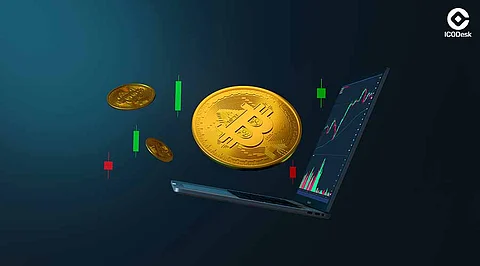

There has been a significant shift of investors from the Indian stock market to cryptocurrencies. This shift has been driven by various factors that have led to high returns in cryptocurrency. The growth of Bitcoin within the past few years has also contributed to the shift. Here, learn why people are shifting from the Indian stock market to cryptocurrencies
The cryptocurrency market is open 24 hours a day. On the other hand, stock market trading in India is open from 9:15 am to 3:30 pm from Monday to Friday. Stock market trading in equities remains closed on Saturdays and Sundays. The equities also remain closed on trading holidays declared by the stock exchange.
This indicates that there is a time boundary involved in trading cryptocurrency. It can be traded anytime. The stock market has time boundaries so it needs to be traded when the stock exchange is opened.
Cryptocurrency has the potential for higher returns while the stock market involves less risk. The stock market gives returns as per the stock market investment. Cryptocurrencies are highly volatile but they offer high gains within short periods.
Investing in the stock market is done for a longer period. Cryptocurrencies like Bitcoin have expanded over the past few years offering high profits. This makes cryptocurrency a better option for investment.
The Securities and Exchange Board of India (Sebi) has proposed laws for Basic Service Demat Account (BSDA). The laws are aimed at small investors. Basic Service Demat Account is an account that enables one to hold stocks electronically. In BSDA, one can hold an investment to a limit Rs 2 lakh. The limit can be further raised to Rs 10 lakh.
The Cryptocurrency Bill in 2021 was introduced in the Lok Sabha and was the first step towards regulating India's booming cryptocurrency market. The bill lays down the rules for the RBI's official digital currency.
This supports and leverages existing cryptocurrency technologies while prohibiting all other private cryptocurrencies in India. There is no central authority regulating the use of cryptocurrencies as a medium of payment in India. 1% TDS applies to the transfer of VDA.
According to the Budget 2022-23 in India, the crypto tax rates have been set to a flat rate of 30 percent. It is imposed on gains from virtual digital assets (VDAs) or crypto assets, irrespective of the income tax slab rate.
In the 2023-2024 budget, Finance Minister Nirmala Sitharaman announced that the tax rate on long-term capital gains for all financial and non-financial assets will rise from 10 percent to 12.5 percent.
The accessibility and convenience involved in cryptocurrencies have improved. Today, many cryptocurrency exchanges have been set up in India. Some of the crypto exchanges include WazirX, CoinDCX, and Mudrex. The crypto exchanges have a user-friendly interface making it convenient. These crypto exchanges also offer education for understanding the market. On the other hand, the stock market is rigid and is not easy to trade as compared to cryptocurrencies.
Cryptocurrencies operate through blockchain technology that offer transparency and security. Cryptocurrency investment is transparent as compared to the stock market. The cryptocurrency market is also secure due to the technology involved while the stock market involves risk and there is less security.
Factors like high returns and volatility, regulatory landscape, accessibility and convenience, transparency and security have driven the crypto market. The crypto market also involves challenges like volatility and changing crypto regulations.